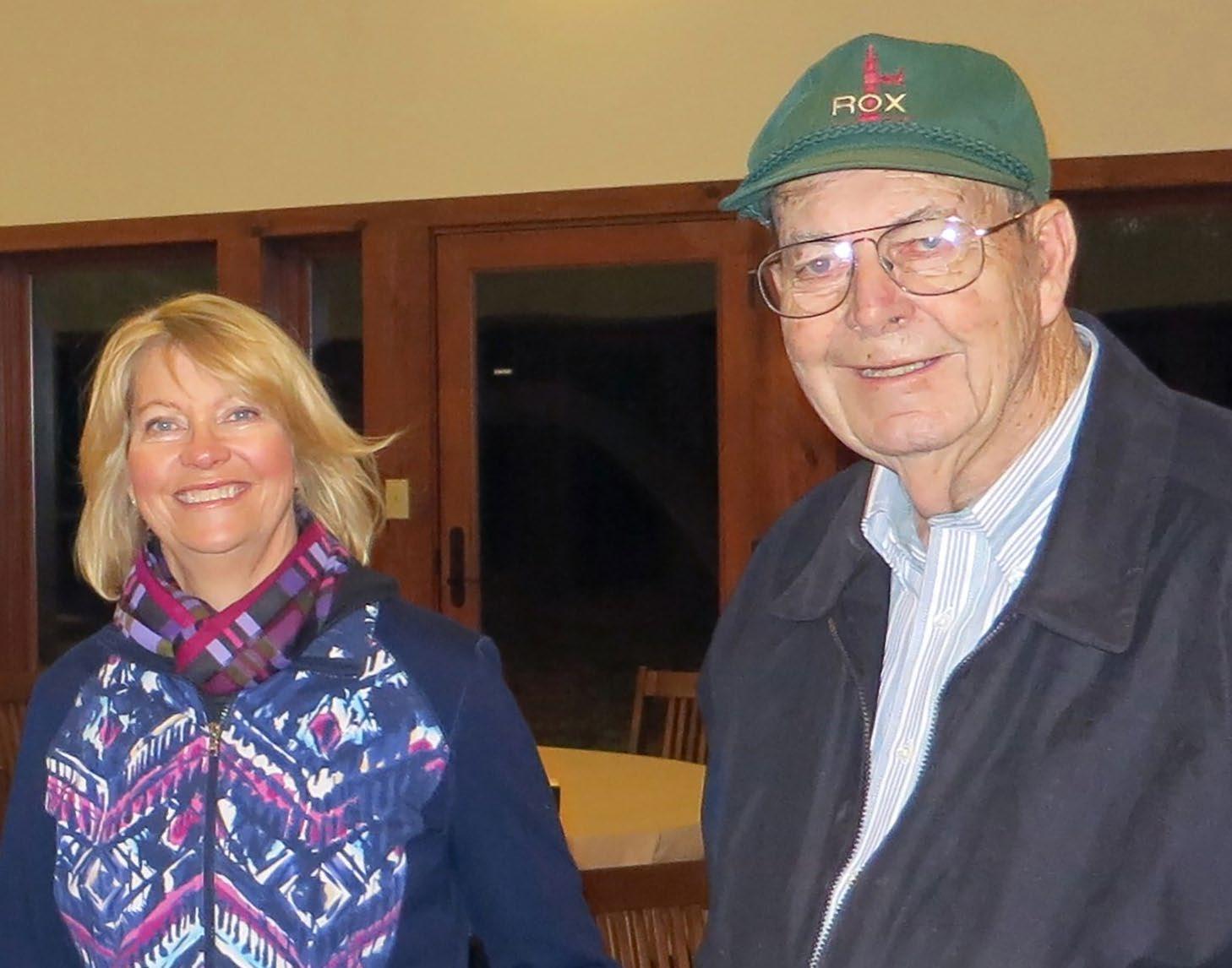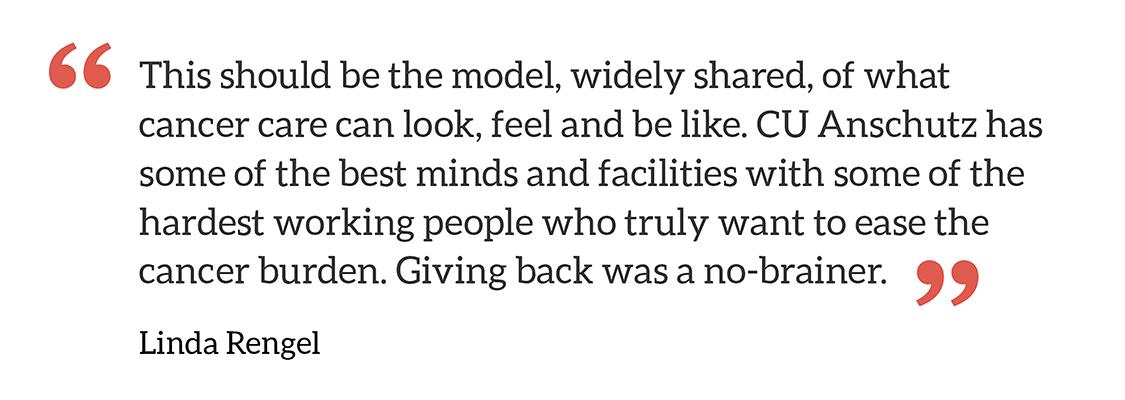
4 minute read
Care Team Provides Comfort Through Cancer Treatment

Featured photo above: Linda and Mike Rengel
Spring was winding to a close and summer was almost in full swing. It was June 2014. This time of year is Linda Rengel’s favorite, as the turn in the weather signifies a start to tennis season. That’s when she noticed a small lump at her left clavicle. After being told by her general practitioner that it was nothing to worry about, she sought a second opinion. A friend with whom Linda played tennis referred her to the UCHealth Women’s Integrated Services in Health (WISH) clinic at UCHealth University of Colorado Hospital (UCH). By the time she visited the WISH clinic, the lump had grown to the size of a golf ball and Linda was immediately referred for a biopsy.
“It was pretty frightening to learn that the diagnosis was stage 4 advanced metastatic lung cancer.” Her only experience with lung cancer was with her father, who was a “two-pack-a-day, hard-living Oklahoma oilman.” After seeing the trajectory of his disease following her own diagnosis, Linda knew she wanted a different experience, and approached her diagnosis with a different mindset. She credits her nurses with helping her view the diagnosis as a chronic long-term condition that was manageable and not the death sentence she had envisioned.

Linda with her late father, who had lung cancer
“I investigated everything CU Anschutz had to offer including their complementary and integrative medical “specialties,” Linda said. “It was comforting knowing that they had this enormous menu of services, from family support to nutritional counseling.” From the beginning of her journey, Linda found comfort in the community of support provided by her medical team. “I am indebted to the radiation oncologist who went through my scans, slice by slice, and found triple the number of metastases that helped better inform my targeted radiation.” She is also very grateful for her oncologist Erin Schenk, MD, PhD. “I am over the moon with appreciation for her warmth and thoroughness. She is so caring and takes the time to go over how every single system in my body is doing.”

Linda’s journey has also included giving back to organizations dedicated to lung cancer research and treatment. One such group is ALK Positive, a patient support group that provides information, resources and research funding to change the future of anaplastic lymphoma kinase positive (ALK+) lung cancer. She credits D. Ross Camidge, MD, PhD, director of Thoracic Oncology, CU Cancer Center and Joyce Zeff Endowed Chair in Lung Cancer Research, with investing valuable time into advising the group. “I love how active Dr. Camidge is with ALK Positive in both a research and support role.” She credits him with pushing the research forward, which brings with it a renewed hope.
Linda is also involved with Cancer League of Colorado (CLC). When researchers at the CU Anschutz Medical Campus partnered with CLC to raise funds in support of cancer research, she was inspired by the call to action. She felt it was a “win-win situation” to philanthropically support two organizations that have impacted her life in such meaningful ways. She said, “I gave back because my experience was such a breath of fresh air when comparing it to my father’s. This should be the model, widely shared, of what cancer care can look, feel and be like. CU Anschutz has some of the best minds and facilities with some of the hardest working people who truly want to ease the cancer burden. Giving back was a no-brainer.”
Faith is a cornerstone of Linda’s life. She serves as a pastoral counselor at Mile Hi Church. Her work often puts her in contact with individuals who, like her, are dealing with life-changing diagnoses. She has not hesitated to bring others into the fold. “I’m not shy anymore about asking them where they are getting care and recommending UCH.”
A recent study from Jose Pacheco, MD, assistant professor of medical oncology, showed progress made in treating late-stage lung cancer over the last two decades. Patients diagnosed nationally with stage 4 lung cancer from 1995 to 2001 had a 2 percent survival rate after 5 years. Now, 50 percent of patients treated for stage 4 ALK+ lung cancer at UCH between 2009 and 2017 are living 6.8 years after diagnosis. Linda is looking toward the future with optimism. “Every quarter, new drugs are being developed, new clinical trials are coming on line and the research focus is continually adapting.”

Cancer League of Colorado (CLC) has been a longstanding partner of the CU Cancer Center. Over the years, the organization has supported clinical trials that have brought therapies to patients faster, providing alternatives when standard therapies were not effective. Last year, CLC partnered with the CU Cancer Center to offer a match, tripling the impact of gifts to investigator-initiated trials on campus. The momentum this match created allowed us to surpass our goal, and individuals like Linda stepped up in support of these critical high-risk, high-reward projects. Partnerships like that of Cancer League of Colorado allow us to continue to innovate, providing the most effective therapies available to patients in Colorado and beyond.

Web extras available on full version










